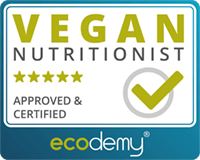Encouraging Friends To Go Vegan
A perspective of a vegan nutrition educationist

Visit activeplantbased for professional help and plant-based nutrition training.
All Key Points
- Ask questions and listen
- Remember your own transition
- Prepare people — slowly!
- Be raw and vulnerable, not opinionated
- Don’t force. Your beliefs are only yours, doesn’t matter if you’re right or wrong
- Research to build trust and make legitimate statements
- Start small and embrace people’s want for change
- Approach the subject with an open heart and mind and focus on the positives
- Stay non-judgmental and be there to reassure them
- Encourage them by cooking together, using ingredients they like or doing fun activities or learning together about nutrition and ingredients
- If they’re not ready to make the change, let them decide what they think is best for themselves
Encouraging friends and family to switch to a vegan lifestyle can be challenging. So here are a few tips on how you can introduce them to veganism and help make the transition easier.
Remembering yourself
Before doing anything, remember your transition.
Why did you go vegan? What did you struggle with? What changed you? And did someone offend you while discussing veganism? What offended you? Can you avoid that when talking to people?
It’s important to remember who you were because people who are potential future vegans most likely use the exact defence mechanism and are imbued with the same belief system, at least within one culture.
Prepare people
I think it works best if people ask questions or wonder why you’re vegan before simply providing information without being asked to do so. If you want to discuss why you’re vegan, ask if it is okay to discuss this topic or share your emotions beforehand. It prepares people for a discussion instead of running head-first into a wall.
Be honest
And then: Be honest, raw and vulnerable about your reasons for choosing veganism. If you know someone who is considering going vegan, be straight with them about why you’ve decided to adopt this lifestyle and provide them with more reasons why other people opt for it.
Potential reasons for choosing veganism
- supporting animals’ right to live free from human abuse and exploitation
- caring for the environment and our planet
- ethical or health-related reasons, etc.
- social structures & fairness
Making them understand that this is about you and your decisions is essential. Keep them out of the equation. It will help them understand your decision and make them more open to following in your footsteps.
No force
Make sure you do not try to force or guilt people into adopting a vegan diet. Instead, always approach the subject of a vegan/meat-free lifestyle with kindness and understanding.
I know that can be very, very hard to hold back, especially when you’re new to veganism and just p*ssed by the fact that you didn’t make the connection from the sentient animal to the meat on your plate earlier. And you may feel like your eyes opened, and you realise that society built some structures, intentionally or unintentionally, to feed you lies more than animal products.
With this newfound knowledge and realisation of yours, it would only be natural to want your closest to experience the same eye-opening events and then choose your chosen path.
Your beliefs are yours only
But, even if you strongly believe in the benefits of eating a plant-based diet, trying to force your views onto other people isn’t the best idea. It can alienate them and possibly create a more substantial barrier between them and veganism (or even make them resent you for pushing your beliefs on them).
Instead, approach the subject with an open heart and mind, and try to help them understand why you believe veganism is essential. The more information people have about veganism, the better equipped they will be to make a decision that’s right for them.

Research
If you say something without researching properly and your discussion partner figures you gave out false information just to make a point, they’ll lose trust.
Do your research beforehand. It’s crucial to be informed about the facts surrounding veganism before speaking with friends or family members about it.
Your knowledge will be invaluable when it comes to helping answer any questions they might have and making them feel comfortable with that change.
Ask questions
Also, just throwing around facts will not work if the person isn’t listening. Instead, ask questions like
- What do you think needs to happen so a cow can give milk?
- Do you know why people are lactose intolerant?
- Can you tell me what you know about animal farming?
- How does a farmer produce eggs? What happens to male baby chicks who cannot have eggs?
- What is worse, eating a cat or a pig? Why?
- Etc.
Building your questions takes time; the more you converse with people, the better you’ll get eventually.
Listen
Listening should be at the very top of this list. Listen first. When a person opens up to you, they trust and respect you. Most of the time, they won’t even be talking about facts surrounding the meat industry; they’ll talk about the feelings and experiences they associate with eating a good piece of steak or how delicious the come-together-at-Christmas-turkey tastes.
Food is an emotional topic. People dislike letting go of things they enjoy; it makes them feel a particular loss. So they won’t let you mingle with their feelings, and why would they?
It’s only natural to defend your way of living; if you figured it’s not right, you wouldn’t do it.
Change
Change often takes a lot of time, patience and courage. In addition, our brain heavily dislikes changes because it has other, more vital tasks to do and change takes up a lot of energy.
Otherwise, people would simply follow their new year’s resolutions. It’s no different with food; How many people (including yourself) do you know who attempted a weight-loss diet and failed miserably, to put it mildly? And veganism, one has to acknowledge, is a considerable change.
Start small
Shameless shill: If you need help with your transition or struggle to keep up for any reason visit me here.
Once you have gone vegan, introduce your new lifestyle slowly to your close surrounding. Instead of announcing that you’ve gone vegan overnight, raise your new diet to them over time.
Going slow will allow them to become familiar with your new eating and living habits without overwhelming them or causing unnecessary stress. Most people don’t even know about veganism, which won’t help your case.
You could start by cooking for your family and making them try your stuff without giving away too much. Or maybe you could ask a friend to help you cook a new recipe.
Some people like to experience new (fun) things, so that’s an excellent way to introduce them to veganism in a non-confrontative and fun way.

Open mind & heart
Be open-minded and flexible. If your friends and family decide to eat meat and animal-derived products, that’s their decision. (Yeah, even if it hurts you.) Remember how long it took for you?
Do not make them feel bad about it. Most importantly, support their choice and understand where they’re coming from.
Focus on the positives. It’s easy to focus on the negatives of changing your diet — your family and friends may not get as excited about cooking their favourite dishes anymore, you might not be able to eat out with friends as often as you used to, etc.
But still, try to focus on the positives more — given that you follow a balanced diet, you’ll probably be healthier, save money on food shopping, help the environment, and keep animals alive and free!
Stay calm and collected
Once you get their buy-in, stay calm, friendly and non-judgemental and make them understand that you value their opinion and are just interested in hearing what they have to say on the subject.
Sometimes people are just nervous about making such a significant change and need some reassurance before they’re willing to take the plunge. If you encounter hard-hearted objections from your friends or family, try to see things from their point of view.
- What do they care about the most?
- Do they think veganism is unnatural and unhealthy?
- Are they worried about giving up meat and switching to a more plant-based diet?
- Can you alleviate their concerns a little bit?
Give up and focus your energy elsewhere
Giving up is also a statement. It’s not your decision who eats plant-based, and you don’t have the force to change someone internally. If they’re not ready, they’re not. Just give them time to get used to the idea, and they might come around eventually.
Focusing your energy where it has more impact is a better idea in this case. For example, maybe you could write a book about your experiences and thus use your energy to make an enormous impact. Or perhaps your profession is compatible with merging veganism? In any case, I think you’ll be able to find your way.
What if my family and friends want to eat (more) plant-based?
After your loved ones are on board and have understood that a balanced vegan diet is a good and healthy choice, the next step is to get them started on the transition to a healthy plant-based lifestyle:
- Try introducing them to delicious new recipes full of healthy plant-based ingredients, featuring some of their favourite foods, but also inspiring them to try new things.
- Encourage them to cook meals together, following recipes that are quick and easy to prepare.
- Take them to a farmer’s market or an animal farm so that they can see the fresh produce for themselves and learn more about what impacts their food has in positive & negative ways.
- Propose fun activities like vegetable or fruit picking, planting and growing your produce.
- Watch documentaries together.
- You could even host a vegan dinner date/party to show them just how tasty and versatile plant-based food can be!
Misconceptions?
The truth is there are a lot of misconceptions surrounding veganism, and many people associate it with an unhealthy or restrictive diet.
However, this is not the case, and there are wide varieties of plant-based diets suitable for all lifestyles and tastes. In addition, the health benefits associated with a vegan diet are many!
It’s worth educating your favourite people about the positive impact such a diet can have on their health, the people and the blue planet.
Once they’ve started experimenting with new dishes and flavours and gaining more and more knowledge on veganism, chances are they’ll be inspired to continue eating this way and soon begin to feel the benefits, too, hopefully. :)
The average vegan
Initial assumptions suggest that ethical reasons play a more significant role than health and ecological motives. That assumption is so far coherent with the vegans I know personally.
For most people, the decision to eat vegan is a combination of different reasons and influences.
If you’re considering transitioning to a vegan diet, you should find out which reasons appeal most to you. According to that, you might have an easier time switching and prioritising what is important to you.

